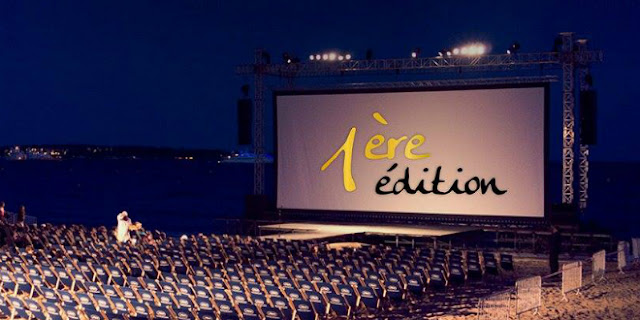Last year foreign film projects in Morocco injected more than $120 million USD (1,075 million Dirhams) into the economy. There were more than thirty foreign films as well as major TV productions. The list of films included A Hologram for the King, Mission Impossible 5, The Red Tent and Queen of the Desert. With a 420% increase on the previous year, it was a great result for Morocco and the upswing appears set to continue
Now comes the news that the next film in the James Bond franchise will have scenes filmed in Morocco. The film,
Spectre, to be directed by Sam Mendes, will be based at the UK's Pinewood Studios, with location shoots in London, Mexico City, Rome and Tangier and Erfoud, here in Morocco.
Spectre, as Bond fans will know, stands for "Special Executive for Counter-intelligence, Terrorism, Revenge and Extortion".
 |
| Daniel Craig and Sam Mendes |
According to film industry insiders in Morocco Sam Mendes and Bond star Daniel Craig recently visited Oujda in search of a location for shooting a train sequence. According to Zakaria Alaoui from Zak Productions the requirement was for a non-electrified train.
 |
| Daniel Craig filmed in Oujda |
It appears they were happy with what they found as a crew will return in June for a ten day shoot which will include scenes in the desert and Tangier. Alaoui says the filming is on a such a scale that it will require at least four months preparation. He and Zak Productions last worked on
Mission Impossible 5 which, according to Alaoui, boosted the local economy to the tune of $30 million.
Alaoui received a career tribute at this years Marrakech Film Festival.
International Correspondent Elsa Keslassy, writing for
Variety, agrees that 2014 was a good year for Moroco after three or four years downturn in the wake of the so-called Arab Spring. Along with
Mission Impossible 5, Keslassy sites two other major U.S. productions that filmed in Morocco in 2014 - Tom Tykwer’s
A Hologram for the King, an adaptation of Dave Eggers’ novel starring Tom Hanks as a struggling American businessman who travels to Dubai to get a fresh start, and Werner Herzog’s
Queen of the Desert with Nicole Kidman as British explorer and diplomat Gertrude Bell.
Karim Debbagh at Kasbah Films, a production company with offices in Germany and Morocco, co-produced
Hologram. The movie was supposed to be filmed in Saudi Arabia, but after the production failed to get a shooting permit, Debbagh arranged for the filming to take place in Morocco.
A Hologram for the King filmed for 40 days in Morocco with a crew of 250 technicians and invested $5 million in Morocco (out of a $25 million budget), said Debbagh, who described the film as character-driven and praised Hanks for his down-to-earth behaviour and friendliness during the shoot.
Queen of the Desert, meanwhile, shot for two months in the country with Kidman, along with James Franco, Damian Lewis and Robert Pattinson.
“A driving force behind the foreign productions surge is the big comeback of bible-themed shows and movies,” explained Abderrazzak Zitouny, head of the Ouarzazate film commission.
 |
Morena Baccarin and Rebecca Ferguson in “The Red Tent.”
|
Ouarzazate, a picturesque city located in southern Morocco, and its Atlas Film Studios remain attractive backdrops for such film and series projects. Lifetime’s miniseries
The Red Tent shot there this year on an epic scope. Starring Morena Baccarin and Rebecca Ferguson,
The Red Tent is an adaptation of Anita Diamant’s bestseller retelling a short chapter of the New Testament centring on the fate of Dinah, the strong-willed daughter of Jacob. Debbagh, who line-produced the two-part miniseries for Sony Pictures Television, said it required over 2,000 extras.
A flurry of upcoming biblical or related projects have also chosen Morocco. Among them:
King Tut, the six-part series about the youngest Pharaoh to rule Ancient Egypt, produced by Canada’s Muse for Spike TV (with local company K Films);
The Book of Dead, the Weinstein Company’s Egyptian detective series (with Kasbah Films); and Chris Menaul’s
Killing Jesus, starring Dominic West (with Dune Films).
On top of the diversity of landscapes and professionalism of crews, the country’s offers the full support and hospitality provided by authorities, including King Mohammed VI ( a movie buff), Morocco’s Film Institute (CCM), the Ouarzazate film commission and locals.
As
The View from Fez reported at the time, for the shoot of
Mission Impossible 5, Moroccan authorities allowed the production to block the main freeway between Marrakech and Agadir for three weeks. Locals didn’t protest even though it caused a deviation of 40 kilometres. “Anywhere else, blocking a major freeway for that long and for the needs of a movie would have caused uproar, but in Morocco we know how beneficial these foreign film productions are to our economy,” pointed out Zitouny.
Many U.S. productions pair European and Moroccan shooting locations. “American producers opt to film abroad because it’s cheaper than shooting in the U.S. and also, in many cases, because it increases production values and international appeal,” argued Zitouny, citing
Mission Impossible 5, which shot in London, Vienna and Morocco.
In addition to fuelling the local economy, American productions have also benefited the local film industry by giving crews and actors high-standard training.
Today, Morocco boasts Africa’s biggest pool of qualified technicians and well-established film schools: Marrakech’s Superior School of Visual Arts, ISMAC in Rabat and Ouarzazate film institute.
Morocco is, however, increasingly challenged by South Africa, which offers attractive locations as well as a tax rebate and cheaper crews.
Local industry players are therefore lobbying lawmakers to establish a competitive tax incentive.
Looking ahead, industry insiders across the board agree on the need to produce even more high-skilled technicians and actors who speak English, as well as build additional high-profile hotels to host more than three major productions at a time.
SHARE THIS!




































.jpg)



